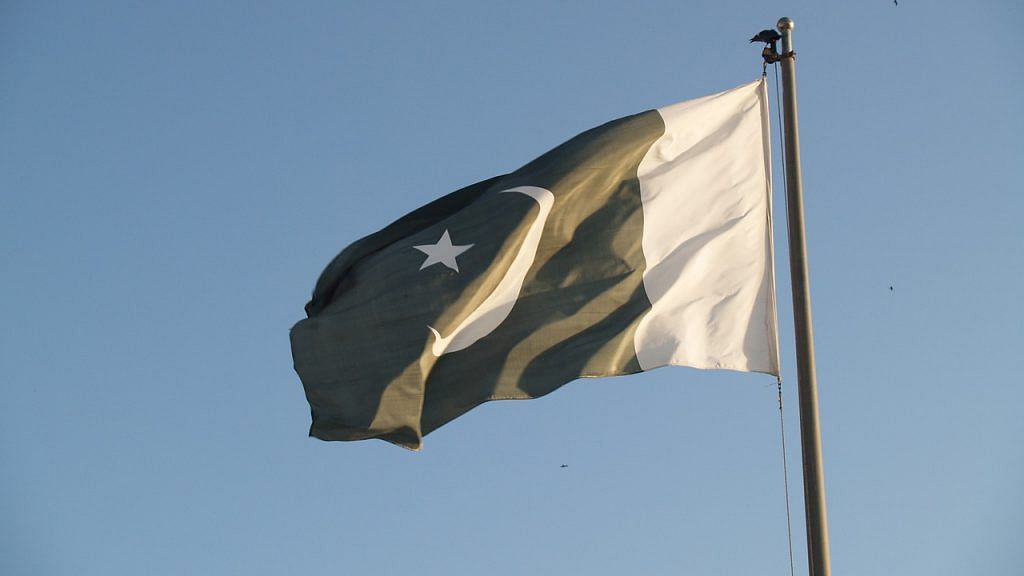Paris: Pakistan is likely to remain in the grey list of the Paris-based terror finance watchdog Financial Action Task Force (FATF) for now.
While Islamabad was hoping to come out of the grey list in the ongoing February Plenary, France, sources said, has recommended status quo.
According to highly placed sources, other European countries back France’s view that Pakistan should stay on the grey list until it complies with all the 27 parameters set by the watchdog to crack down on terror financing.
While Pakistan has fulfilled 21 parameters, two recent incidents — including the January acquittal of Omar Sheikh, the prime accused in the 2002 beheading of American journalist Daniel Pearl, by the Pakistan Supreme Court — made Islamabad’s position weaker, sources said.
The FATF Plenary, which is its highest decision-making body, will be taking its final decision Thursday, 25 February. Pakistan, sources said, is likely to be given until June 2021 to implement all the recommendations.
The FATF is an intergovernmental organisation that has 37 nations, including India, and two regional organisations as members.
France is one of the influential member-countries within the European Union (EU) and has a huge sway over the decisions made by the bloc as well as by the UN, where it is a permanent member of the Security Council.
France’s reported stance on Pakistan’s retention in the grey list comes amid a phase of chill in bilateral ties. President Emmanuel Macron’s comments about Islam last year — after a teacher was beheaded in the country by a radical Islamist — elicited criticism from Pakistani leaders. Pakistan has not even appointed an ambassador for France in eight months.
Speaking to ThePrint, sources in Pakistani diplomatic circles said the reason behind deteriorating bilateral relations is the “economic and defence deals being concluded between Paris and New Delhi”.
Also Read: Pakistan is hoodwinking the world on terror funding. FATF grey list needs to go darker
‘Weakened case’
It was announced after the FATF’s last plenary in October 2020 that Pakistan has fulfilled 21 parameters. The country was then given time until the February 2021 plenary to ensure compliance.
However, there have been concerns about two recent events, sources said. One is Sheikh’s acquittal, which drew criticism from the US and European nations, and the other, an alleged death threat issued to Nobel laureate Malala Yousafzai on Twitter by former Tehreek-i-Taliban spokesperson Ehsanullah Ehsan. The same group — known as the Pakistan Taliban — is believed to be responsible for the 2012 assassination attempt on Malala. The terrorist reportedly fled government custody last year.
The FATF, sources said, has also noted a “sudden disappearance” of the names of more than 4,000 terrorists under Schedule IV of Pakistan’s Anti-Terrorism Act. The original list had 7,600 names.
Steps Pakistan has taken
Pakistan was placed on the grey list, also known as Jurisdictions under Increased Monitoring in FATF parlance, in June 2018. It was subsequently asked to fulfil the 27 parameters.
At the FATF Plenary in February 2020, Pakistan was given four additional months for meeting 13 of the targets. In October 2020, due to the Covid pandemic, Pakistan was given additional time even as the FATF hailed some of the steps taken by the Imran Khan government. The FATF said Pakistan has frozen the accounts of several proscribed organisations, and taken strict measures against people associated with them.
Pakistan, it said, has also taken strict measures against organisations identified by the FATF. The government of Punjab, it noted, has taken control of numerous schools, Mudaris, hospitals, ambulances, dispensaries, laboratories and many other institutions that were being run under the patronage of the Lashkar-e-Tayyeba and its fronts Jamat-ud-Dawa, and the Falah-e-Insaniyat Foundation.
The Pakistan government has appointed administrators in the institutions, all of which are now under the direct control of Islamabad. In this regard, the country’s Parliament has amended 15 laws.
According to sources in the Pakistani delegation to the FATF, it has taken practical measures — and implemented legislation — to honour the parameters set by the watchdog.
Younas Khan is a Paris-based independent journalist
Also Read: ‘Blacklist Pakistan’ — Exiled dissidents hold protest outside FATF headquarters in Paris
